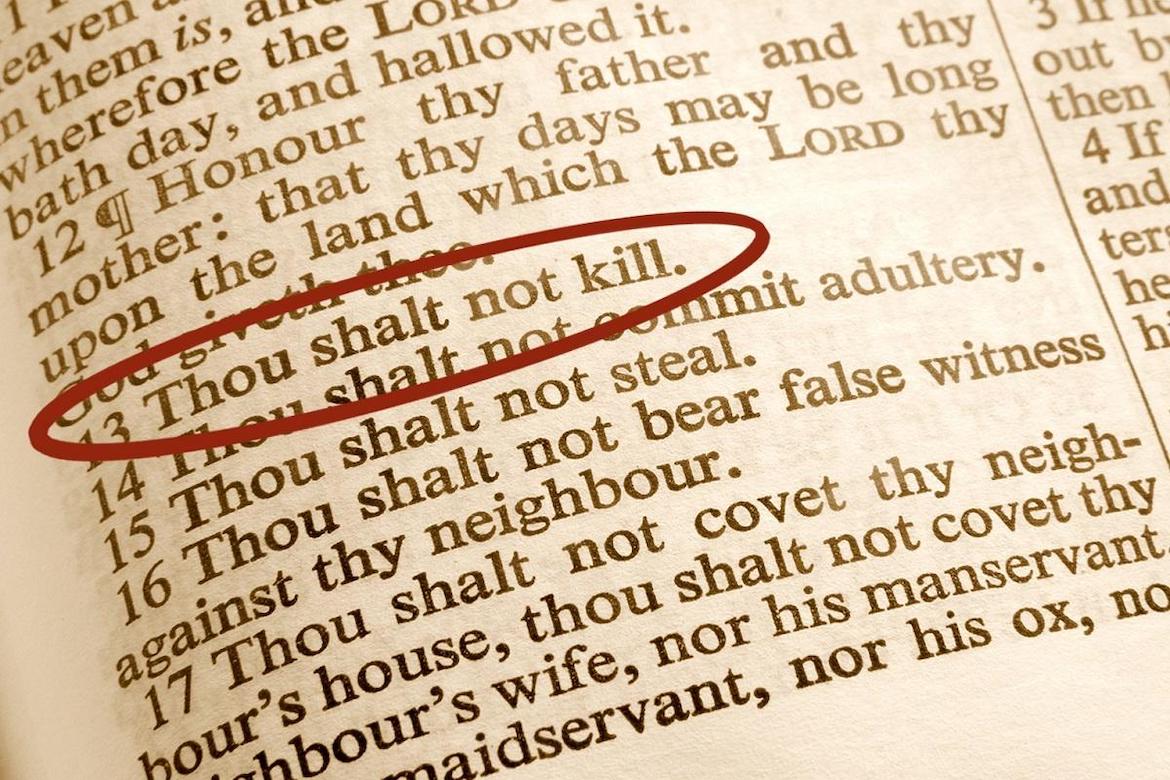Early on January 16, Dustin Higgs became the 13th person executed by the United States Government in the past six months. Indeed, in 2020, more persons were executed by the federal government than by all the 50 states combined (a total of seven).
Many will seek to blame the outgoing Trump administration, but there is a deeper issue that bears consideration.
Certainly, the biggest complaint seems to be that the Trump administration broke precedent by not staying executions during the transition to a new administration. The most important issue, however, is not about timing, but about how our country and society view life and death.
President Trump neither convicted nor sentenced any of those executed; he also did not spare their lives. Nor did a majority of the Supreme Court, which has legally sanctioned capital punishment. Nor did the U.S Congress which has still not abolished the death penalty, irrespective of party control. Nor did the citizens of this country, who have voted for their political representatives in the House and Senate, not to mention successive presidents.
As a former president of the Illinois Coalition to Abolish the Death Penalty, after long and hard-fought battles to demonstrate the injustice of the death penalty (which cannot be reversed if errors in convictions are discovered after executions!) I was optimistic when Illinois and other states abolished the death penalty. Yet those important victories were comparably small to the larger battles to be fought in many other states and, now so obvious, at the federal level.
Although my objections are primarily due to my religious convictions, other partners in the fight have very practical and moral arguments to make.
Economically, it is less expensive and even more just to imprison for life without parole with the possibility of some restitution from convicts than to kill them. There is no payment of any debt by the dead.
Morally, the fallibility of investigators, prosecutors, judges and jurors (if not, in some cases, their prejudiced or malicious intent), has been so often documented to err in capital cases. Illinois was only the most glaring example, with more than a dozen death-row inmates exonerated that even a pro-death penalty governor had to concede the point. There are many, many more specific arguments as well.
My fellow Christians cannot overlook inconsistencies in championing a “right to life” for some persons such as the pre-born but deny such a right to anyone else; either it is a right for all, or it is not a right. Likewise, the well-established fact of systemic biases and racial disparities cannot be overlooked by those claiming that God loves all persons, the righteous as well as (and perhaps, especially) the sinner.
Repentance and forgiveness are paramount virtues that Christians cannot apply, encourage or seek with any partiality.
Rightly, many are concerned about the deep political divisions present in our society, and the violence at the Capitol revealed that in part, as did the uprisings against other social injustices over the past year.
We are all concerned about the ongoing pandemic and the risk it poses for both lives and livelihoods. In the end, all are related to our common struggle between life and death, and we will never be a just society until we fight for what is right, and death is always wrong.
About the author
Bishop Demetrios (Kantzavelos) of Mokissos, a native of Chicago born to first-generation Greek-Americans, serves as the hierarchal proistamenos of St. Photios Greek Orthodox National Shrine in St. Augustine, Florida. The bishop grew up as an active participant in Chicago’s historic Assumption Greek Orthodox Church and later attended Hellenic College and Holy Cross School of Theology in Brookline, Massachusetts. With an unyielding commitment to the sanctity of life, Bishop Demetrios works for justice and humanity in the prison system. He has served as a board member and past two-term president (2003-2005) of the Illinois Coalition to Abolish the Death Penalty and received the coalition’s Cunningham-Carey Award in 2007. He has spoken and written extensively in support of abolition of the death penalty and has advocated extensively for individual death row inmates. Having met with the Illinois Governor on several occasions on the subject of capital punishment, Bishop Demetrios was recognized for his advocacy as an invited guest at the ceremony where Illinois Governor Pat Quinn signed legislation abolishing the death penalty in 2011.
Would You Like to Add Your Voice to The Pappas Post?
This post is part of our “Voices” section which aims to broaden the conversations in our community and allow people to share what’s on their mind. These articles in no way reflect the position or opinion of The Pappas Post and our inclusion of a story doesn’t reflect affirmation or denial of the particular point of view. Rather, we seek to give people a platform to share their views.
Interested in submitting your article? Read our guidelines and submit your content today.
Is The Pappas Post worth $5 a month for all of the content you read? On any given month, we publish dozens of articles that educate, inform, entertain, inspire and enrich thousands who read The Pappas Post. I’m asking those who frequent the site to chip in and help keep the quality of our content high — and free. Click here and start your monthly or annual support today. If you choose to pay (a) $5/month or more or (b) $50/year or more then you will be able to browse our site completely ad-free!

Click here if you would like to subscribe to The Pappas Post Weekly News Update
